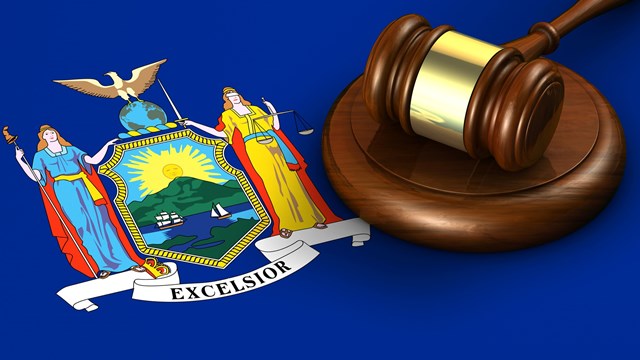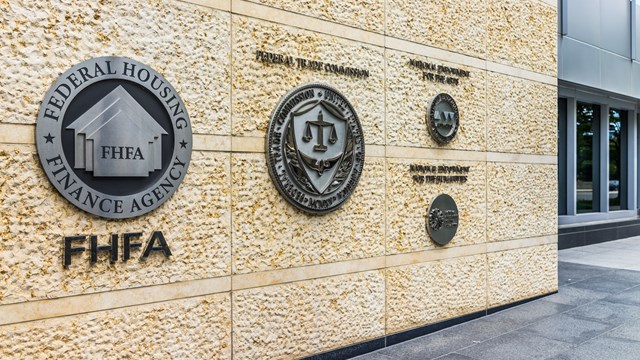
Co-op and condo boards are made up of resident volunteers who want to serve their building communities and have a hand in its governance. While some board members actually make their living as attorneys and have a working knowledge of the law and understand the long-term legal implications of board decisions, most are not legal professionals. Board members who are not legal pros may let their administrative ambitions overreach their understanding; or they may withdraw and take a hands-off approach to decision making on building matters.
In smaller, more tightly-knit buildings, there may be the sense that a more informal approach to administration, or just leaving well enough alone when it comes to rule making and enforcement is the more neighborly way to operate. According to the legal professionals, this approach is tempting, but it can be harmful to the building in both the short and long term. Decisions made by a board can be difficult—and sometimes impossible—to undo, and such decisions can affect a building’s operation for years to come. That’s why savvy board members tread cautiously when making decisions that might have lasting legal implications, and why it's vital to have competent legal counsel whenever there is the shadow of a doubt.
Deciding Carefully
According to attorney Mindy H. Stern of the law offices of Schoeman Updike & Kaufman LLP in Manhattan, the first step for a board considering any important decision is to understand their building's own governing documents. “It’s crucial for boards to understand the organizational documents of the co-op or condo, because they provide the first blueprint,” she says.
Those documents are critical for boards to understand because they delineate the obligations of the parties involved. And board members, whether they realize it or not, have a fiduciary responsibility to act in the best interests of the building.
According to Al Pennisi, an attorney with the law firm of Pennisi Daniels & Norelli LLP in Queens, all members of a co-op or condo board should have read their building’s organizational documents—including its bylaws—and should consult those guidelines and their attorney before rendering a decision on any policy or change of rules and regulations.
Not that bylaws and house rules are an easy read, of course. Many attorneys representing building boards go over the organizational documents with the board members in order to familiarize them with their own rules and protocols. Board members also can get information on their volunteer jobs from the Federation of New York Housing Cooperatives & Condominiums (FNYHC) and the Council of New York Cooperatives & Condominiums (CNYC). Subscribing to publications like The Cooperator might also be helpful.
Perhaps because there is not a set of formalized standards or training criteria for new board members, many are not fully aware of what their own governing documents contain, or of their own personal legal responsibility when it comes to decision making within the board context. Consequently, some board members take their building-related decisions more lightly than others. Helping to balance this out is part of what a good building attorney does for his or her clients.
“When we get a new client, we assume they know their organizational documents," says Andrew Brucker, an attorney with the law firm of Schecter & Brucker PC in Manhattan. "You’d be amazed by how often they consult them—but just as often, people are not really careful in their decisions.”
Decisions made by a board should be consistent and reasonable, because such decisions are most likely to pass a lawsuit, Brucker continues. “You should always be reasonable, because it’s a community. You should be doing it for everybody, and you shouldn’t let personal feelings get in the way."
A building’s attorney or manager can effectively communicate the importance of the board making objective, non-personal, bylaw-based decisions by reminding them that a co-op or condo is essentially a small government. Because of that, there is nothing wrong with considering the desires and expectations of the majority—as long as it's done legally and within the framework of the building's own rules and administrative protocols.
Aside from the organizational documents of the building and the counsel of its attorney, thorough, complete meeting minutes are another way to ensure that the decisions board members make complement rather than contradict the decisions of past boards and square with the parameters laid out by the building’s documents. Minutes include not only the board’s decisions and how individual board members voted, but also explanations of why the board made the decisions it did.
In addition to consistency, good record-keeping and transparency in decision-making, it’s good if a board has consistency in its professionals. It helps with a building’s institutional memory to have a manager or lawyer that has been with the board for some time, who understands the background of decisions made by boards over the years. Ignorance of a building’s history can create conditions in which residents are so oblivious to building regulations that many regularly flout them.
Exceptions & Enforcement
When compliance with a couple of rules slips in a building, legal pros say that the slippage frequently spreads to other rules, making it very difficult to get residents back on track. Rather than to simply crack down on non-compliant residents, building administrators can start to remedy the situation by sending out a warning letter (or two) reminding residents of the rule and making it clear that violators of the rule will be cited after a certain date.
Whatever first actions a board takes to bring residents back to rule-abiding status, clearly and explicitly expressing the information is paramount. “Communication is the most important thing in co-ops and condos,” Brucker says.
Board members will sometimes be tempted to bend the building’s rules, or even waive them, in favor of a particular shareholder or owner. These scenarios might be honestly motivated, such as when a board wants to waive the late payment fees of an owner in light of a family tragedy, or allow an aged resident to keep a companion animal despite a no-pets rule in the building.
Under certain circumstances—like a senior resident with mild dementia, or a single dad who loses his job and can’t afford the late fees—Pennisi advises boards to “consider these situations on a case-by-case basis."
All of the residents of a building are neighbors, and a board member’s decisions should respect his neighbors while doing what’s best for the building. There are situations when making these exceptions may be OK, but many attorneys advise against them.
While he does advocate compassion in difficult circumstances, “We tell [boards] to be careful in making exceptions,” Pennisi says. “If the board allows five people who are their friends to have dogs [despite a no-dog rule] but deny you the right to have a dog, you’d have a good case in court because the board violated their own rules.”
Stern also usually advises against such decisions. “It’s a slippery slope—where does it end? Sometimes it’s a matter of evaluating it and doing the thing that makes the most sense,” she says. While it might seem innocuous if some residents always leave their garbage outside their door or paint their front door a different color even though it’s against building policy, leaving the issue alone could lead to more residents breaking the same rules. Aside from fomenting resentment among rule-abiding residents, garbage in hallways leads to spills, stains, and vermin—and a hodgepodge of different colored doors could put off prospective buyers and lower property values for everyone in the building.
The upshot is that ultimately, every resident has to be treated equally, and rules must be enforced consistently. “I often say to boards, ‘What would people say if they found out?’” Brucker says.
If a board member has to ask, “Should I really do this?” regarding a decision he or she is about to make, the board member may have a problem. From that point, making the wrong next move could set a precedent that causes unforeseen problems for the board and the building. And in a matter of moments, the best intentions of a board could be upended.
Management Awry
When board members base decisions on personal feelings rather than on their building’s organizational documents, trouble often follows—and that trouble is often costly.
Pennisi recalls one case in which members of the board took action to terminate the proprietary lease of a particularly troublesome resident. The board failed to give the resident due process to be heard however—they simply called him in to tell him his lease was to be terminated. The resident in this instance sued the building and won, receiving not only monetary damages, but the full asking price of the apartment as well.
The moral of that story is, “If you’re calling a person before the board, he must be given the opportunity to be heard,” Pennisi says.
Just as board must give a resident the chance to be heard before taking action against him or her, they also must realize that “under the law, [residents] have the right to complain,” Pennisi says.
Some board members want to evict a resident based upon perceived objectionable conduct but they must be very careful in such cases. A board must show a pattern of clear and demonstrable violations by the resident before he or she can be lawfully evicted. “We tell boards to build a file on the owner," says Pennisi. "Write them letters and tell them what action will be taken if they don’t comply."
Whether a board is faced with a decision about allowing owners to keep pets, or with the case of one resident who is going through a rough patch and could just use a break, the pros agree that it's vital that board members first understand their building's own rules, and then consider how the judgment they make today may affect the community long after their term is over. Striking a balance will ensure that all the precedents set by the current board are good ones.
Jonathan Barnes is a Pittsburgh writer and a frequent contributor to The Cooperator.






Comments
Leave a Comment